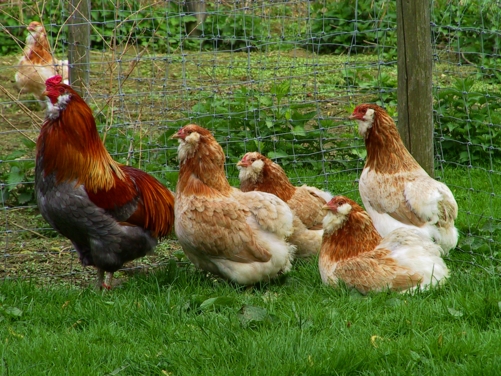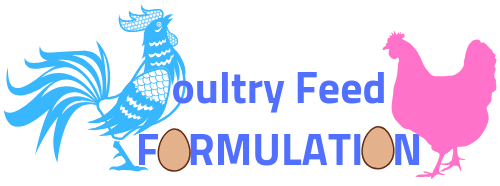Is Ginger for Chickens The New Superfood?
Ginger (Zingiber officinale) is a fragrant, seasonal plant that includes a thick, fibrous, white, or buff-colored rootstock.
It came from tropical regions of Asia and is cultivated in tropical areas worldwide, specifically in Jamaica and other islands in the Caribbean. The primary active component in ginger is gingerols, which are responsible for its unique taste.

Specific applications on ginger for chickens studied in poultry include:
- Intestinal Improvements: Ginger is widely known for its traditional beneficial usage in maintaining healthy digestion. It helps in relaxing and calming the digestive system, and to prevents the development of inflammatory substances.
- Egg quality: Adding 10-15 g/kg of other ginger root powder to the diet plan of laying hens improved laying performance and serum egg yolk antioxidant status and boosted dietary oxidation stability.
Making certain your chickens’ diet plan is right is the distinction between having pleased hens laying lots of eggs and grumpy hens who will peck your finger off if you go near them!

We altered our chickens’ diet last year and were astonished when within a number of days their egg laying had plummeted- so we’ve been investigating chickens’ diets since.
This web is packed with lists of do’s and don’ts when it concerns feeding your chickens, so more recently, we’ve been experimenting with other ways to keep our women healthy and ensure they are still laying good quality eggs.

We aren’t thinking about giving our hen-produced supplements/tablets as they do at some commercial farms–, in lots of nations, using development-enhancing prescription antibiotics are now prohibited, fortunately.
So we went trying to find natural organic treatments rather.
While researching, we came across this piece of research study by Dr. Zhao. He studied the ginger’s results on hens, specifically how feeding ginger to chickens impacts their egg-laying performance.

Facts and Properties of Ginger
Ginger is one of the most often utilized herbs in organic poultry farming since it is used in natural chicken medication. The following are some of the qualities found in this vegetable:
1. It is high in vitamins B and C.
2. Calcium, phosphorus, aluminum, and chromium are among the minerals found in it.
3. It is rich in fiber and includes amino acids.
4. It contains essential oils such as limonene and citronellal.
5. It is anti-inflammatory, anti-anemic, antibacterial, and antioxidant.
6. It boosts the immune system.
7. It has therapeutic properties.
Ginger for Chickens Improved Egg Laying Performance Recent Study Shows
In the research study, they used 675 Hyline brown hens that were around 27 weeks old. These 675 hens were divided into five different control groups.
Each control group was provided either with 0, 5, 10, 15, or 20 grams of ginger powder per kg of feed for ten weeks.
The ginger for chickens utilized in the study was offered to the chickens in various types consisting of ginger powder, ginger root, and mixed water.
They discovered that hens supplemented with ginger powder began laying eggs with a greater mass and found a higher quantity of antioxidants in the egg yolks.

Dr. Zhao concludes by declaring that the ‘optimum’ amount of ginger powder for laying hens is between 10-15 grams per kg of feed.
It looks like we have found the ideal natural remedy to keep our ladies healthy and laying eggs, so please excuse me while we go and acquire a 20KG sack of ginger for my hens.
Is Ginger for Chickens That Beneficial?
Although feeding your chickens gingers appears like a terrific natural organic treatment, we would advise you to be extremely careful.
Interestingly in both of the studies above, neither commented on any possible negative adverse effects. However, we understand that ginger is a rhizome that can be dangerous if taken in particular amounts.
Research studies detailing the toxicological effects of ginger with chickens are rare; however, we handled to find a couple of!
Worryingly one found that when ginger made up 1% of a chicken’s total dietary consumption, it resulted in muscle swelling and death.
In addition, they discovered that the chickens had increased cholesterol levels and decreased amounts of protein.

The strength of these side-effects was figured out by the amount of ginger offered and the length of time we’re given ginger for chickens.
When ginger for chickens was given at a high dosage for a long time, these side effects became more popular.
Bear in mind that too much of an awesome thing can end up being a bad thing.
Surprisingly, when you feed your chickens’ food with strong flavors, such as curry spice, this can change the taste of their eggs. So beware, as you may end up eating gingerbread-tasting eggs!
The Advantages of Providing Ginger for Chickens
Some newcomers to poultry husbandry are unsure whether ginger is beneficial to hens since they are unfamiliar with the impact that this plant can have on animals. The following are some of the advantages of providing ginger to hens.
1. It aids in the treatment of digestive issues such as constipation.
2. Avian nutrition increases the appetite of birds.
3. Aids in the prevention and treatment of infections
4. It is effective in the treatment of the flu virus.
5. Chickens’ immune systems are strengthened as a result of this supplement.
6. It also has a calming effect.
7. It is beneficial in the healing of wounds.
8. Ginger is effective in the treatment and prevention of gastrointestinal and respiratory illnesses.
9. It is also highly beneficial to administer it throughout cold and flu season. Increased body heat generation in birds results in improved blood circulation.
10. Ginger is utilized as a probiotic for layers and as a growth booster for broilers, and it can be used to prevent the usage of synthetic antibiotics and to replace them.
Is Ginger Good For Chickens?
For chickens, Ginger is known to be a great appetite stimulant, anti-oxidant, and likewise a tension reducer-perfect for when the pressure of being a hen gets all excessive!

Ginger is a miracle worker that is excellent for our feathered buddies’ circulatory system, helping to promote blood circulation, so including it in their diet plan in the winter season is necessary.
Try scattering some dried ginger over their feed or grating some into prepared oats-what a treat! Take tea with your chicken companions and experiment with the super Ginger suitable for both you and your flock.
How to Prepare and Feed Ginger to Chickens
It is fairly easy to feed ginger to birds. All that is required is to grate and boil a piece of ginger in a liter of water for 4-5 minutes. Following that, once the ginger solution has cooled, it is poured into the chicken drinker for consumption. This ginger tea should be taken once or twice a week.
Another option is to put little grated pieces of dried or fresh ginger in the feeder. Some people prefer ginger powder since it is simpler to blend with meals. The recommended dose is 10 grams of ginger per kilogram of feed.
Ginger for Chickens and its Derivatives Are Also Excellent Alternatives to Antibiotics in Poultry Feeds
Poultry businesses have sustained quick advancement through the last three decennaries. For which reason, greater usage of anti-bacterial, either as therapeutic or development promoting agents, has been accepted.
It is owing to the issue of establishing bacterial resistance amongst populations towards antibiotic generations.

The build-up of anti-bacterial remaining’s in chicken products and raising consumers to ask for results without anti-bacterial remains, searching for unconventional options that might exchange anti-bacterial without affecting efficiency or product characters.
Utilizing natural options consisting of ginger, garlic prebiotics, natural acids, plant extracts, etheric oils, and immune stimulants have been applied.
They are advancing the efficiency, holding poultry efficiency, avoiding and managing enteric pathogens, and reducing the anti-bacterial usage in poultry production over the last few years.

Using a single replacement or perfect assemblage of various options besides excellent guidance and animal well-being might play a standard function in optimizing advantages and protecting poultry efficiency.
This study aimed to support a summary of the current understanding of using natural replacements (ginger and its derivatives) in poultry feed, feed ingredients, and their results on poultry efficiency, egg and meat quality, health, along with economic performance.

Conclusions on Ginger for Chickens
Ginger and its derivatives could be safe due to having no intense toxicological results evaluated through the experiments.
According to many research studies, information was discussed that the speculative feed supplements reduced gizzard mass and stomach fat without resulting in broiler growth features and carcass profiles.
Natural or traditional herbs for chickens are very beneficial to the birds’ health. They are intended to prevent or treat illnesses that are not too difficult or are diagnosed early. As a result, any bird exhibiting any significant illness signs should be brought to a veterinarian and treated.

Also, it was mentioned that feed supplements with ginger showed favorable supremacy upon immune action and anti-oxidants of broilers.
It could be due to ginger’s extreme antioxidant action, considering that microbial-based dietary add-on boosted normal antibody development.
A range of options has been used as anti-bacterial agents in poultry production.
Use of ginger for chickens extract as a feed additive to increase the production of low-cholesterol eggs, which consumers choose since cholesterol is a sign of heart disease.

Many research study results showed that ginger for chickens and its derivatives revealed comparable results to prescription antibiotics in poultry.
In addition, suitable dosages and the application technique for these options to prescription antibiotics are very important for them to be more reliable in poultry.
REFERENCES
- Karangiya VK, Savsani HH, Patil SS, Garg DD, Murthy KS, Ribadiya NK, Vekariya SJ. Effect of dietary supplementation of garlic, ginger and their combination on feed intake, growth performance, and economics in commercial broilers. Vet World. (2016)
- medicinalherbinfo.org Ginger Medicinal Herb Info Website (2016)
- S Sierralupe, C Hunter. Ginger: King of Stomachaches, Nausea, and Inflammation The Practical Herbalist (2015)
- El-Bahy NM, Bazh EK. Anthelmintic activity of ginger, curcumin, and praziquentel against Raillietina cesticillus (in vitro and in vivo). Parasitol Res. (2015)
- Akhlaghi A, Ahangari YJ, Navidshad B, Pirsaraei ZA, Zhandi M, Deldar H, Rezvani MR, Dadpasand M, Hashemi SR, Poureslami Improvements in semen quality, sperm fatty acids, and reproductive performance in aged Cobb 500 breeder roosters fed diets containing dried ginger rhizomes (Zingiber officinale). Poult Sci. (2014)
-
Ginger and Its Derivatives as Promising Alternatives to Antibiotics in Poultry Feed.
-
Impact of Ginger Root Powder Dietary Supplement on Productive Performance, Egg Quality, Antioxidant Status and Blood Parameters in Laying Japanese Quails.
Related posts:
4 Important Factors to Keep in Mind When it Comes to Poultry Feed Formulation
Best Ways To Boost Your Chickens Immune System
10 Amazing Ways on How To Design A Good Chicken Coop
7 Amazing Ways to Deal with Chicken Sneezing
10 Amazing Reasons to Raise Cochin Chickens
15 Astounding Friendliest Chicken Breeds to Raise as Pets



Best breakfast is eggs and bacon…
Great insight and very informative.
It is then stored and released from the pituitary gland a small gland at the base of the brain. Plaquenil Jdsxrl Walking faster or slower requires additional muscular exertion and is more tiring.